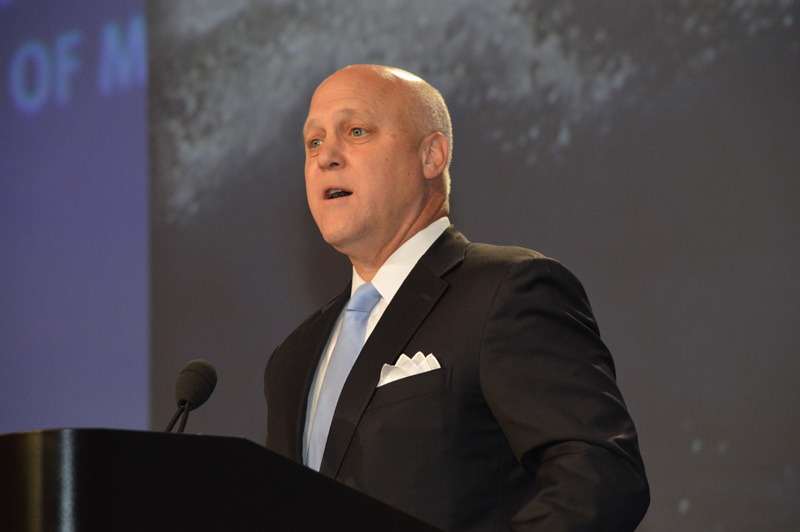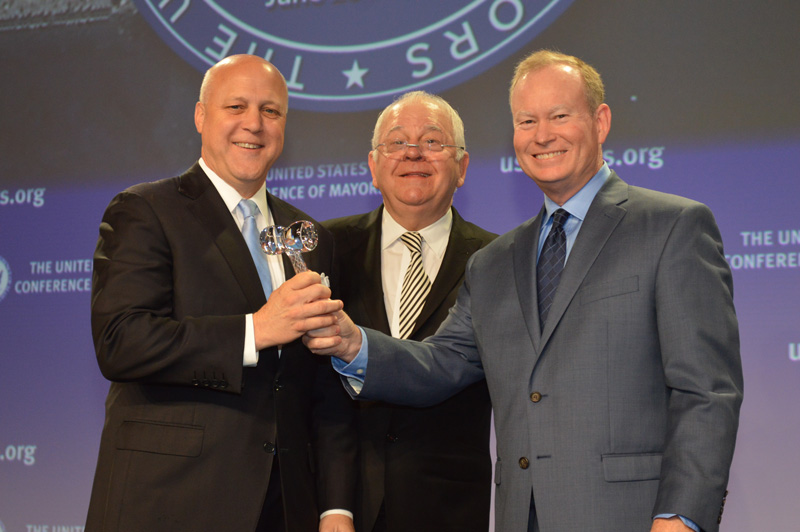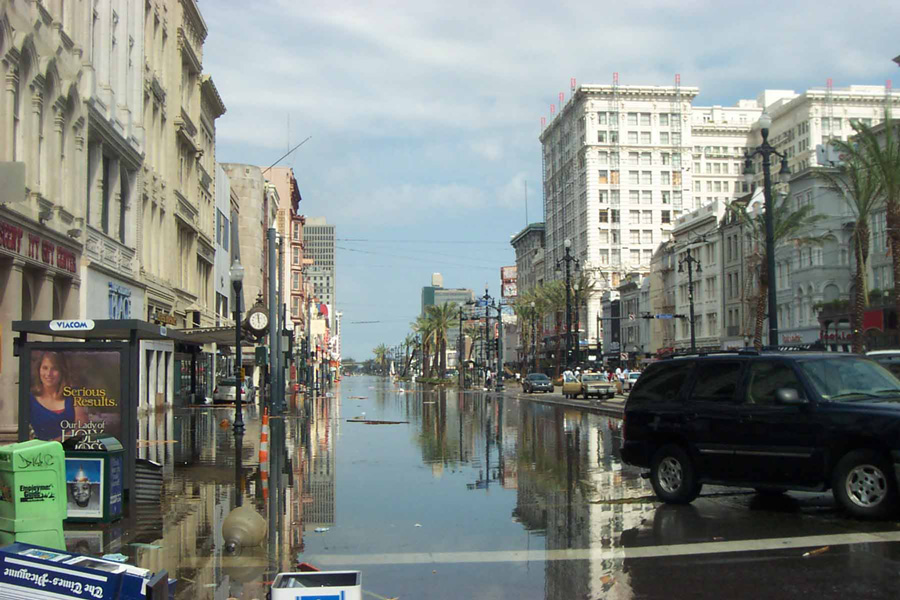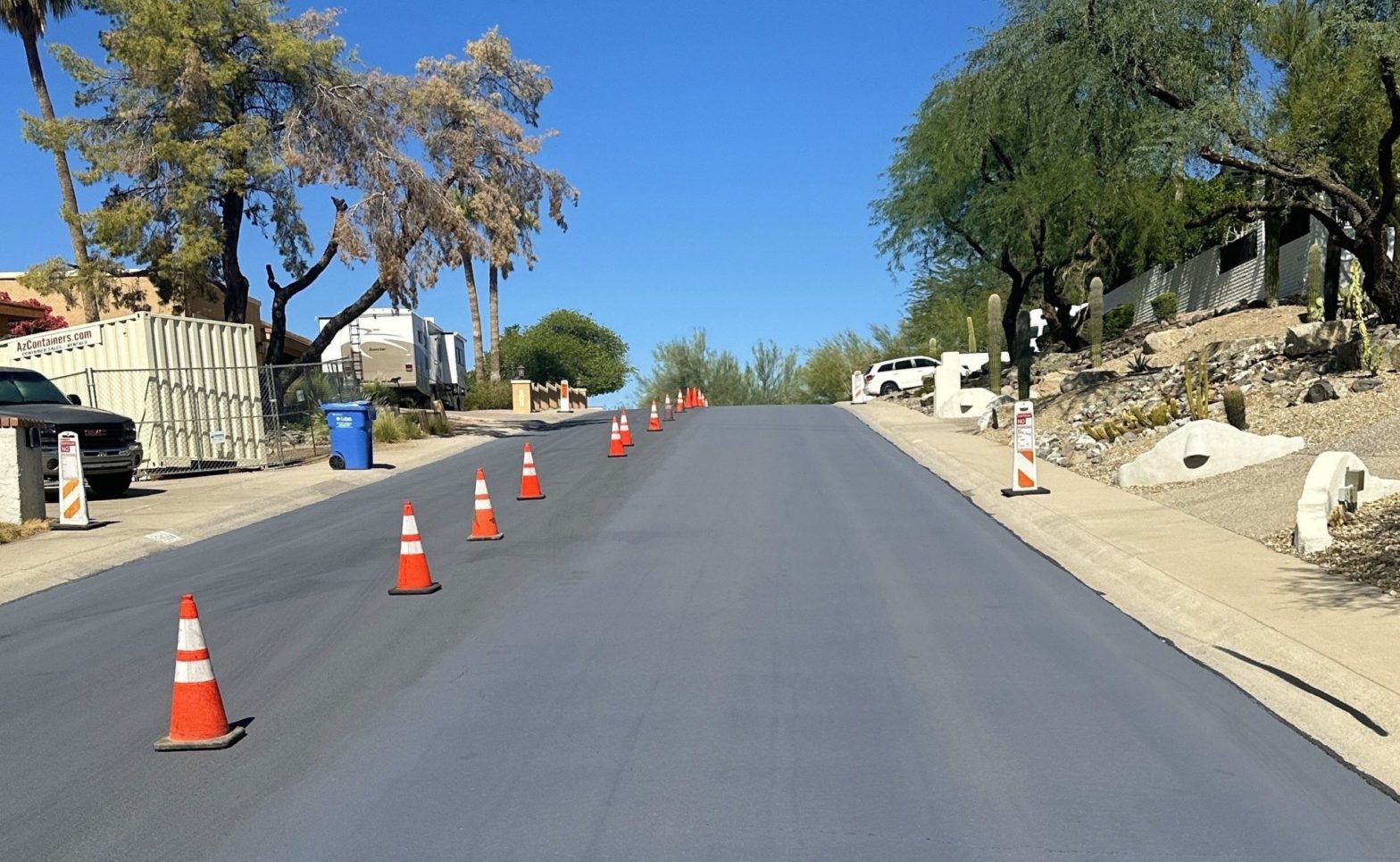
Photo: USCMb-low-res
Interview: Mitch Landrieu, Mayor of New Orleans
22 November 2017
by Jonathan Andrews
In June, Mitch Landrieu, Mayor of New Orleans, began his one-year term as President of the US Conference of Mayors. Jonathan Andrews spoke to him as he returned from his latest trip to Washington DC about why mayors deserve a bigger role on infrastructure, healthcare and climate change action
You took over as President of the US Conference of Mayors (USCM) at possibly the most challenging time with a federal administration at odds with many of the USCM’s policy positions. What will be the key stances you’ll take as President? Are there any ‘red lines’ for mayors?
We don’t have any red lines, that’s not the way mayors work. We are constructive and always want to build partnerships and when we can’t find a way, we make one. We don’t draw red lines because it creates false expectations and promises that you can’t deliver on. We always think there is a way to solve a problem and if there are people of good will, there is a way to find common ground.
Secondly, we have recognised that we don’t set the agenda in Washington DC. We have to try to ascertain from what’s coming out of the White House, what congress is talking about [to then get across our] position about those particular things.
Our strong observation, and one that we agree with, is that the country wants to do something about infrastructure sooner rather than later. We believe, based on our experience–because we are the ones that build 75 percent of the projects in America–, that mayors know how to build things on time, on task and under budget. Congress ought to be working directly with mayors in drafting the infrastructure bill. You can’t speak about this bill without integrity. You need real money and new money–public money–directed to the construction of buildings, bridges, ports, all across America, and that you shouldn’t count things that have already been built in the private sector.
We believe in public-private partnerships–that works for some cities with a lot of money–but we also believe that direct federal spending is important. We have informed congress that we have already put up 75 percent of the money through money raised locally that the federal government has to show up to do its part or we aren’t going to be able to build the US$5 trillion infrastructure gap that we have in America and we will be economically weaker because of it. We stand ready to work with them on that.
On healthcare we are available to give testimony to what the reality is to the proposals that congress is working through and remind them again that when they make bad decisions all they do is push problems down to the ground. This puts mayors in a position of having to solve untenable problems like emergency rooms that are so full that it takes up the emergency responders’ time, increases crime and increases healthcare costs. That’s a bad way to do it because it’s a backend way of providing healthcare–if they provide it at all.
We are all for creating substantial jobs for economic development, and income inequality is important to us. Generally we are very proactive about the innovative things that we are doing. Eighty-five percent of Americans live in cities and over the next 20 to 30 years, 67 million more people are going to live in cities. We don’t see the world as urban versus rural we understand clearly that we need our fellow Americans in rural areas and they need us for economics and culture as well and so we are very open and inclusive rather than exclusive and closed. We believe diversity is strength not a weakness.
You were in Washington DC at the end of July, was that mainly to discuss healthcare?
We were in Washington [for a] couple of days and we were generally talking about infrastructure, healthcare, jobs and tax reform and the impact that tax reform has on all of those other issues.
Have you spoken to the Trump administration since becoming President? How has the new administration welcomed the US Conference of Mayors?
The communication channels are pretty good, they’ve been available to us, and they have somebody that is assigned to work with the mayors. We have an open line of communication with them. We’ve had a number of Trump appointees come to some of the mayoral events. Mike Pence [US Vice President] came and saw us, and some cabinet secretaries have come, so we have a pretty good line of open communication. But we are not on the same page practically about how to solve some of the most difficult problems that our cities are facing and we want to continue to keep the door open.
Mayors have sent a very strong message that we aren’t ideological, we’re not partisan, we are problem solvers, we do not consider ourselves as part of the ‘resistance’ or part of folks that are ‘for’ or ‘against’, we just want to solve problems. We actually happen to be solving some of the most difficult problems in the country, so we’re telling the folks in Washington DC to work with us, we will help them find solutions to problems but they have to show up and play a part.

You began your career in politics at the state level as a legislator and then as Lieutenant Governor of the state of Louisiana, to then become mayor in 2010. Do you think that now with political discord at national and state levels not only in the US but globally, that more mayors need to go back into state and national politics to, as Bill Clinton says, “get the job done”?
Mayors are observing for the country that the models of government that used to work are not working that much anymore. You can’t look at things as being federal, state or local. Our observation is that in order for us to get anything done, government–horizontally and vertically–has to be in communion with each other. There has to be clarity of purpose, clarity of thought and clarity of execution. We can’t do anything on our own. We need the private sector, the not-for-profit sector, faith-based communities… everyone has got to be in the game.
The way you process an issue, cannot be ideological, it can’t be, ‘Oh the right wing and the Republican party want this, so we can’t talk about anything else’, while the left wing demands this. We just have to ask ourselves, ‘What is the answer to this problem? How do you solve it? How much money do you need? Where does it come from? What’s the strategy?’. Sometimes the answer is more conservative, sometimes it’s more liberal, sometimes it’s more public sector, sometimes it’s more private sector or public sector, it’s usually an accumulation of all those different interests participating.
That way of getting to an answer is a whole lot different from trying to figure out whether the left wing of the Democratic Party or the Freedom Caucus [the conservative wing of the Republican Party] will let an issue be heard on the house [House of Representatives] floor. It is foreign to us that they don’t talk about these issues with all of the people in the room, all of the time. That’s what we do, that’s how you get different ideas and different thoughts. But because of the arcane rules of how Washington DC works, it can’t even tee up an issue that requires a constructive response, that’s just generally true and specifically with this administration.
Being kind, it’s fair to say that [the Trump] administration is distracted from hour to hour and can’t really stay focused on one particular thing. Of course that makes it hard for anybody to pivot off of. Mayors are calling for more discipline more focus, more clarity and then a better way of allowing people to argue through the ‘pros’ and ‘cons’ of issues and getting to an answer. That’s the message that we are sending.
While they are up there [in Washington DC] stuck, we are down here on the ground doing innovative wonderful things and making sure that cities are places where people really want to live and work. The economies of some cities are bigger than some states. We’ve got a great group of mayors that are really smart, they are tough, they are working hard and they have a lot of responsibilities on their shoulders and we are just trying to communicate that to our congressmen and women and our senators and of course to the White House.
As a member of 100 Resilient Cities you released the world’s first resilience strategy nearly two years ago. What has been achieved in those two years and what are the most pressing challenges for your city?
It’s important that cities recognise that they are vulnerable to climate change, sea level rise and, in our instance, coastal erosion and subsidence along with sea level rise which is a triple threat. We also recognise that we are threatened by natural disasters like hurricanes that can produce infrastructure disasters. For cities just to be aware of their vulnerabilities is critically important. We were made painfully aware of this because of Hurricane Katrina, so for the last eight years we have been rebuilding the city back in a way that it is very different from how it was built before–just structurally. We also now have a levy system that is fairly robust and a couple of years ago we began work on our carbon footprint on which we are making good progress.
The Paris Climate Agreement was something that we participated in and we were sad to see that the United States, through the executive branch, pull out of it. We were also heartened to basically communicate to the world that be that as it may we don’t have to follow the lead of the federal government. Mayors collectively and cumulatively–because most of this stuff happens in cities anyway–we can get pretty close to hitting the Paris Accord benchmarks.
We are in the process of instigating and instituting a plan that helps us do that by cutting our emissions in half by 2030. We are making sure we secure money to restore our coast and trying to get people aware of the fact that this is an existential threat. Hopefully over the years, we’ll become more resilient as a result of us paying attention, of what I consider to be fairly serious threats

The Mayor of Christchurch, New Zealand, said in June at the New Cities Summit, that it’s unfortunate a city has to experience a disaster to fully comprehend its ramifications and plan accordingly. What can cities learn from New Orleans’ experience after Hurricane Katrina?
There is a lot to learn from all the innovative things we have done in education reform, government reform, healthcare reform and so on but what [stands out] today is the value in investing in infrastructure. We’ve spent about US$26 billion in rebuilding our schools, hospitals, housing and transportation, but what’s happened as a result of that is the creation of a lot of jobs. By creating a structural foundation we’ve allowed the economy to grow producing 20,000 jobs, and what’s followed was a huge amount of private sector investment.
Just the notion–in case anybody questions it–that federal spending in partnership with state and local money produces a good outcome is unquestionable. New Orleans is the poster child and the proof of concept for that idea and we commend it to the rest of the country. You can come down and see the spectacular things that have been built and the private sector response to it which was dramatic–and the creation of jobs as a consequence. We are holding ourselves out as an example on that particular issue.
On healthcare reform we built primary healthcare clinics and brand new hospitals. We’ve taken people who used to get acute care in the emergency rooms [to taking them into] early preventative care circumstances that have done really wonderful things in terms of people’s long-term health. We’ve got to have the money to support those institutions that do that and so we are showing what is going to happen in a negative way if congress doesn’t fund appropriately access to insurance. In every other area, transportation, the port, aviation, all of those things we have some experience in taking a bad situation and turning it into a good situation and are happy to be an example should they need one in those areas.
You are also a member of the C40 group of cities that is campaigning globally for cities on climate change action. Do you think there is a risk that some will criticise mayors for stepping beyond their remit instead of “fixing potholes and collecting the rubbish” especially when it goes against federal policy?
First of all we have to make sure that we do that well. Every mayor has to be good at the basics. Senators in congress don’t have to fill potholes, make the streetlights work or run police departments. We have to do that. It is also our job to communicate to governors, senators, congressmen and the president of how it actually works and the consequences of them doing something or not doing something.
We are not stepping out of our roles, we are stepping aggressively into and assuming our responsibility to testify what the consequences of their actions are and I would argue that mayors should do more of that and not less. That’s why we go to Washington DC, we’d prefer not to have to go but it’s our job to communicate to people what we do, on the negative and positive side and communicate to them whether or not their actions are going to hurt or help us, or how we could do it better.
Many cities in America are international destinations in and of themselves. Some cities are more prominent than the states that they are in. New Orleans is a pretty good example of that. We require different things than the state entities do from time to time. Mayors are very high level CEOs that in some instances have more complicated jobs than some other folks in the public sector.
New Orleans became the first city in December last year to reach an agreement with Airbnb whereby hosts register their short-term rental with the city, obtain a business license, and pay the required fee all through the Airbnb platform. How has this gone down in the first six months with residents and hosts?
It’s been pretty good. Trying to integrate the sharing economy, whether it’s residences or cars–Uber or Lyft–is very complicated because you have to upset pretty rigid structures that are in place. You are dealing with livelihoods and so all of those conversations were very contentious. One of New Orleans’ missions has been to try and create a model for the rest of the country. Our team did a really good job of trying to thread the needle on allowing some individuals in New Orleans to have access to the sharing economy on the provider side while not destroying neighbourhoods or the tourism industry. We think we got a pretty good balance.
It was also important to us to be able to enforce it and so one of the unique things about the system that we set up was to be able to make sure that the industry paid taxes and to use those revenues to make sure that they were in compliance and I think we did it pretty well.
Not surprisingly, like with every other major issue, when it is happening everybody says the world is coming to an end and then after when everything gets put in place, everything levels off and then it takes a while to figure out what the real consequences are, which means you have to measure it. But all things being equal our assessment is that we hit it pretty well on the mark and we feel pretty good about it. But I’m not sure you actually know until you are a couple of years out when you have a good body of data to determine what the real impacts are.
You are due to step down as mayor in May 2018–due to term limits–will you still remain as President of USCM and what are your future plans?
I wouldn’t call it stepping down I think they are throwing me out! May 5th, 2018 is when my term ends. When you are no longer a mayor you can’t be the president, so when my term ends, I’ll stay on for a little over a month until the June Summer Meeting [when the new president will be formally announced].
Is it too early to ask what your future plans will be?
It’s not too early to ask but it is too early to answer, primarily because I don’t really know. First of all it is a great honour to serve as mayor, and [every former mayor] I’ve talked to who went on to do other things in their life said that being a mayor was the best job they ever had. I told my team not to waste the last year but to stay focused and finish strong. We are in the process in New Orleans of one of the greatest rebuilds in American history and we have done about 891 projects, it’s been really great but we are not finished yet.
Our mission when we got here [City Hall] was pretty simple. It was to stop the city from falling off a cliff, because we had [hurricanes] Katrina, Rita, Gustav, the recession, the BP oil spill, we were basically on the verge of bankruptcy and our job was to turn the city around and to lay a really strong foundation so that the next mayor and the next city council had a good opportunity. We’ve successfully done that but we haven’t finished. In order for the city to survive and do well we need another eight to 12 to 16 years of really good progressive leadership like Chicago did when it pulled itself up and like New York did. I told my team to keep their head down, to finish strong, to work hard and then when we’ve finished I’ll have plenty of time to think about what I want to do next.







